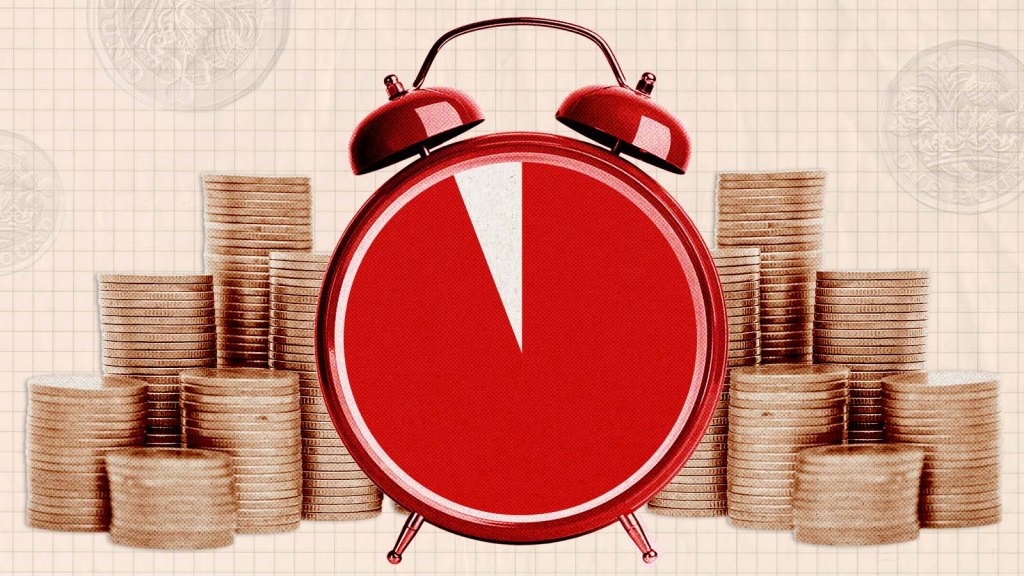Last Call to Safeguard £95,000 from Rachel Reeves
With only four days remaining before the budget announcement, individuals have a limited window to benefit from £95,000 in tax breaks and allowances.
Taking full advantage of the £20,000 Individual Savings Account (ISA) limit, contributing the maximum £60,000 to a pension, or utilizing the £3,000 capital gains allowance are the top priorities for many savers as they seek to maximize their tax benefits.
This year has shown a surge in contributions to pensions and Junior ISAs, with investment platform Hargreaves Lansdown reporting that it is second only to the pandemic for savings in adult ISAs.
The usage of the full £20,000 ISA allowance for the tax year 2024-25 has increased by 40% compared to last year, with contributions to self-invested personal pensions up by 69%, according to Hargreaves.
Anna Murdock of wealth management firm JM Finn noted, “Many investors traditionally wait until the end of the tax year to put money into their ISAs, but this year we are engaging in these crucial end-of-year discussions earlier, anticipating changes from the upcoming budget.”
Although time is running short, there’s still an opportunity to take action before any detrimental tax reforms may be announced on Wednesday.
Maximize Your Savings: Up to £32,000
Reports indicate that the Chancellor may propose an increase in capital gains tax (CGT) rates on shares, while property sales are expected to remain unaffected.
Investors can secure £3,000 of gains annually tax-free. Basic-rate taxpayers face a CGT rate of 10% on profits from assets outside of an ISA, while higher and additional-rate taxpayers are subjected to a 20% tax.
Strategizing your asset sales is essential, as CGT is incurred only upon realizing gains. Consider spreading your sales across different tax years if feasible. Losses can also be offset against gains from other assets, reducing your CGT liability.
Utilizing the £20,000 annual ISA allowance for your investments presents an advantage since any gains, dividends, or interest earned in these accounts are exempt from tax. If you haven’t maxed out your capital gains allowance, you could consider selling assets to do so, then quickly repurchasing them within a stocks and shares ISA, a strategy known as ‘Bed and ISA.’
Bestinvest, an investment platform, reported a 25% increase in Bed and ISA transfer applications since the new government took office on July 5, compared to the same timeframe last year.
Don’t forget to contribute to Junior ISAs for your children or grandchildren, with an allowance of £9,000 per year, further shielding their funds from taxation. Beneficiaries gain access to the account at 16 and can withdraw money by the age of 18.
Enhancing Your Pension: Up to £60,000
Under auto-enrollment regulations, employees aged 22 and older earning a minimum of £10,000 are automatically enrolled in a workplace pension, contributing at least 5% of their earnings, with employers contributing 3%. Some employers, however, offer more generous contributions.
Employers currently do not pay national insurance on pension contributions; however, potential changes are anticipated that may impose this charge. With a national insurance rate of 13.8% for employees earning over £9,100, such changes could deter firms from exceeding the minimum contributions.
The ripple effect could significantly impact employee retirement savings. A survey by the Reward & Employee Benefits Association found that 42% of those who currently contribute more than the minimum would consider reducing their contributions, with 63% less likely to increase contributions in the future.
Helen Morrissey from Hargreaves Lansdown advised, “If your employer matches your contributions or exceeds the minimum payment, maximize your contributions to fully benefit from this opportunity.”
You can make additional pension contributions up to an annual limit of £60,000, which includes tax relief, through a workplace pension or Self-Invested Personal Pension (SIPP). Higher-rate taxpayers may need to reclaim any additional tax relief from HM Revenue & Customs (HMRC).
Making Gifts: £3,000 or More
Anticipated budget changes may lead to stricter inheritance tax (IHT) regulations. Families should consider gifting money or assets now, leveraging available reliefs to transfer wealth to relatives or friends.
An individual can leave up to £325,000 exempt from IHT upon death, with an additional £175,000 allowance applicable if leaving a primary residence to a direct descendant. Amounts exceeding these limits are typically subjected to a 40% tax. Transfers between spouses or civil partners are exempt from IHT.
Each year, individuals can gift up to £3,000, which can be distributed among as many people as desired in the form of cash, investments, or personal belongings such as jewelry. Additional gifts of £5,000 are allowed for a child’s wedding or civil partnership, with allowances of £2,500 for grandchildren or great-grandchildren and £1,000 for others.
Under the seven-year rule, larger gifts can typically be made without incurring IHT, provided the giver survives for seven years post-gift; if death occurs between three and seven years after the gift, IHT is applied on a sliding scale. Discussions about extending this term to ten years have emerged.
Pension funds can usually be passed on tax-free, and beneficiaries may withdraw funds without incurring income tax if the pension holder passes away before age 75. Financial advisors often recommend utilizing other savings, like ISAs, prior to accessing pension funds.
Rob Morgan from Charles Stanley suggested that individuals should examine current regulations and consider who will benefit from their assets and any potential impact on their families.
Refuel Before Increases: About £3.30
For those whose fuel tanks are low, it’s advisable to visit the gas station before Wednesday. The 5p reduction in fuel duty from 2022 may be reversed, with potential duties rising to align with inflation for the first time since 2010. Currently, fuel duty stands at 52.95p per litre, with an additional 20% VAT applied.
The AA, a motorists’ organization, indicated that reversing the 5p cut could result in a 6p per litre increase in petrol prices, now averaging 134.8p. This could increase the cost of filling a standard 55-litre family car from £74.14 to £77.44.
Edmund King, president of the AA, remarked, “Implementing a fuel duty hike just as winter begins is ill-timed, as the cold weather leads to greater fuel consumption due to engine inefficiency and the use of heaters, lights, and wipers.”




Publicar comentario